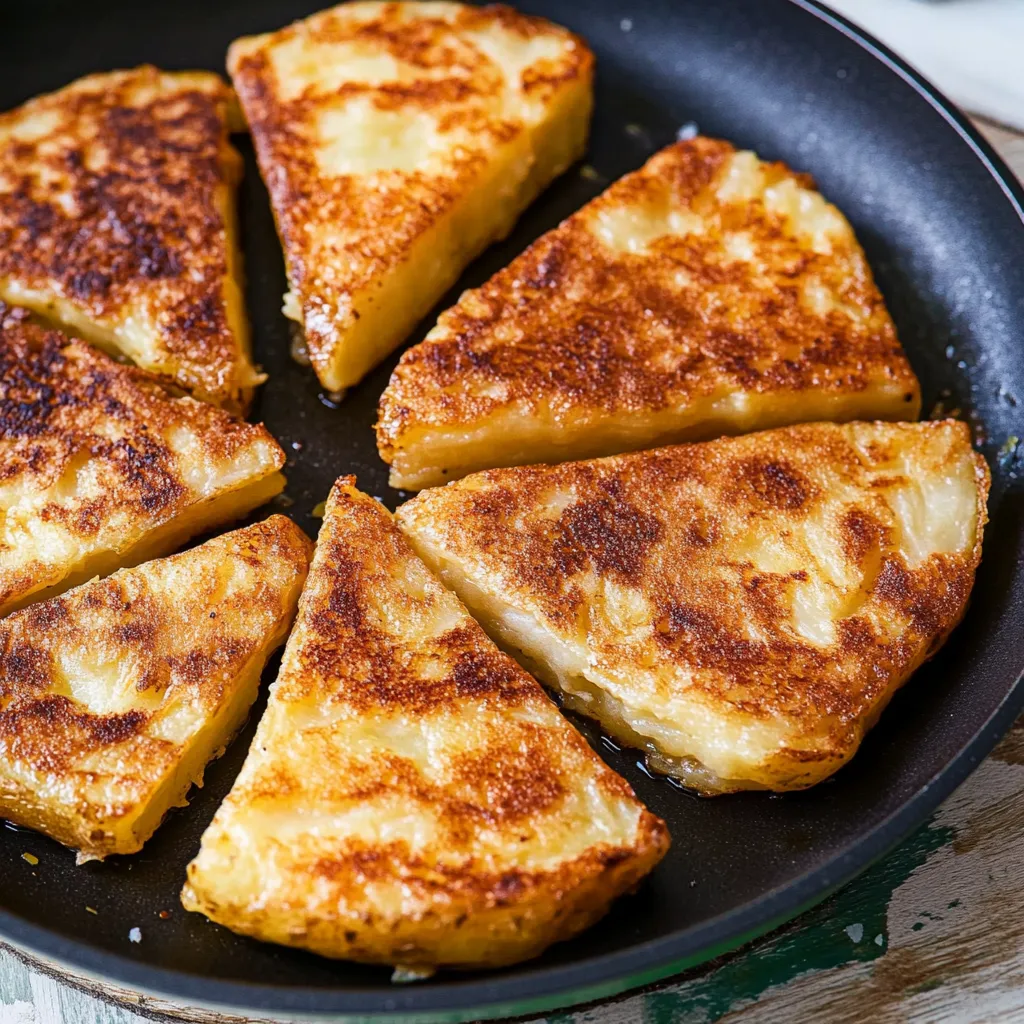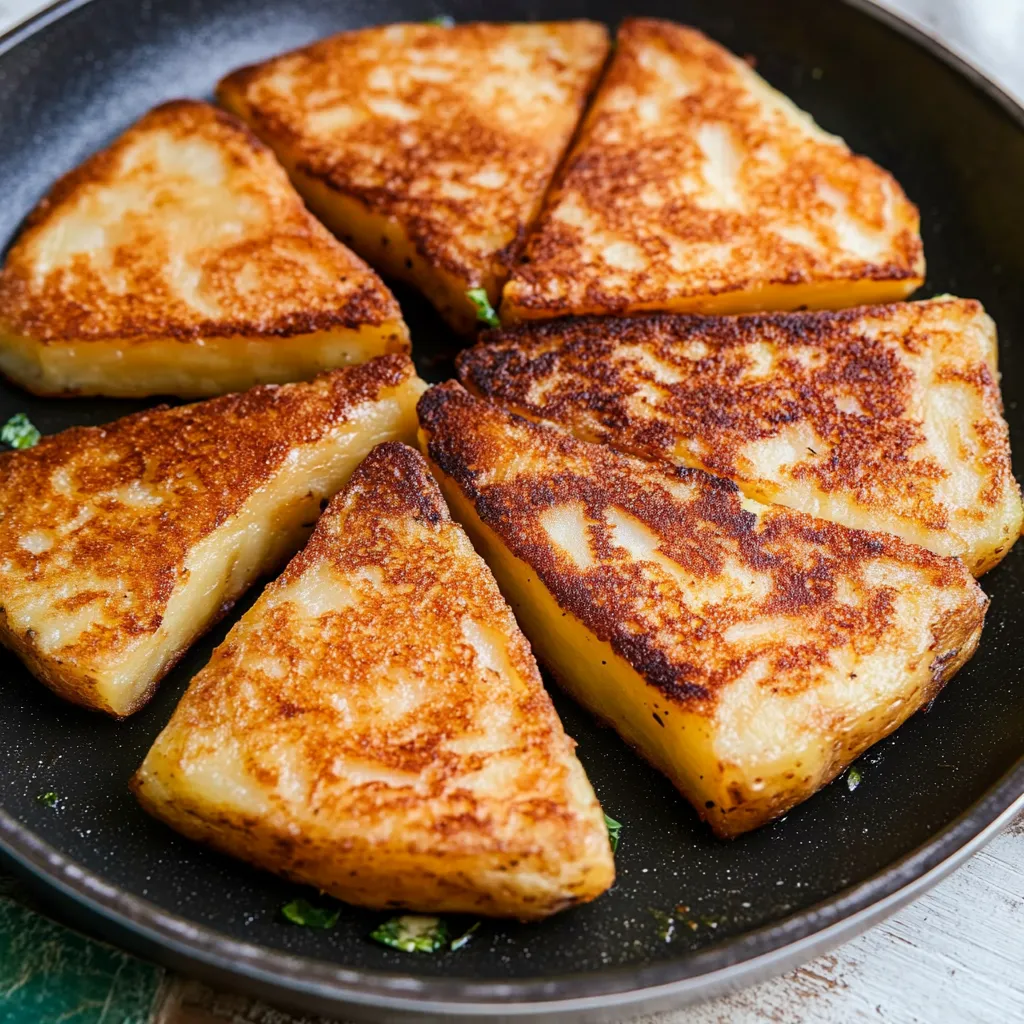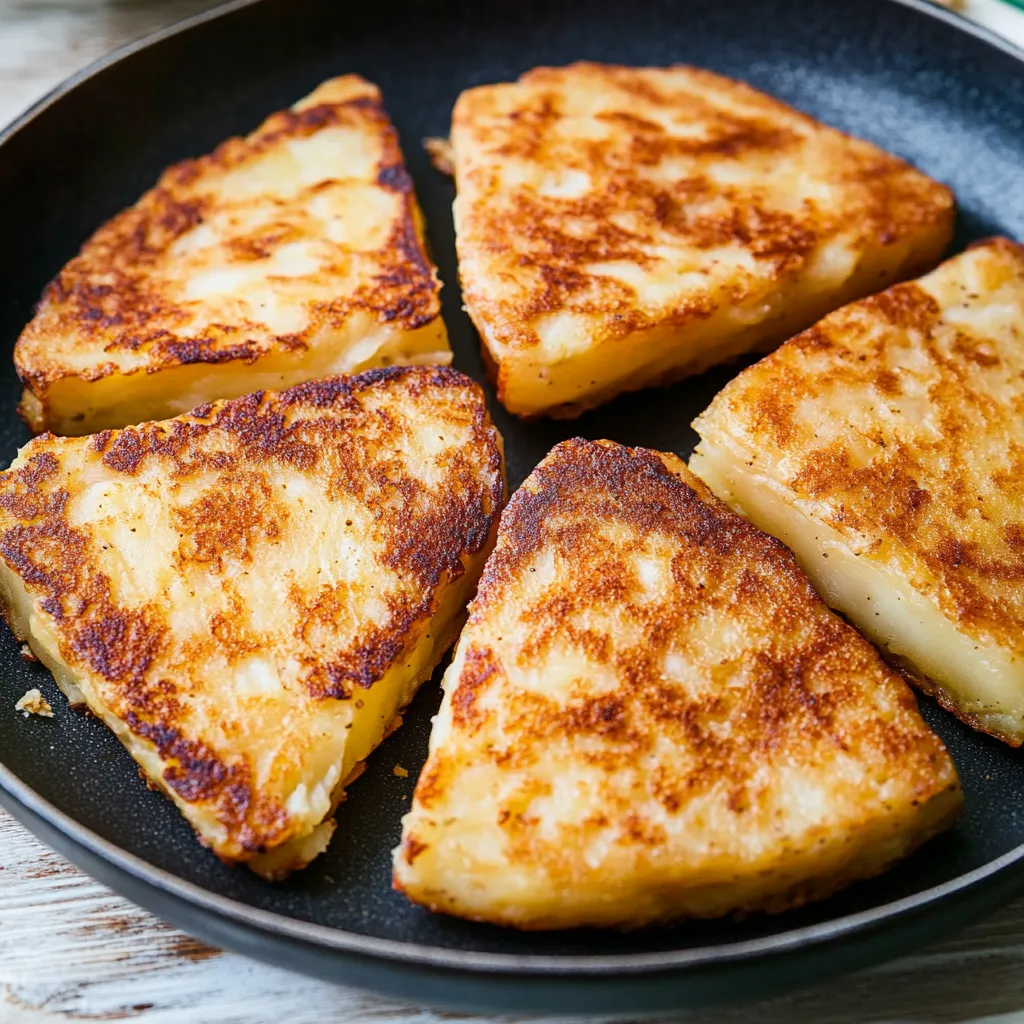 Pin it
Pin it
Irish potato farls are a cozy comfort food bringing rustic tradition right to your kitchen. The recipe turns humble potatoes into soft golden wedges made for breakfast or snacking. I love making a batch whenever we crave a hearty homemade side that reminds me of my grandmother’s table.
I started making potato farls after a trip to Belfast and now they show up any time my family wants something warm to dip into fried eggs.
Ingredients
- Russet, Maris Piper or Rooster potatoes: Three medium for fluffy texture with a modest starch content. Look for firm smooth skins, avoid any green tinges.
- All-purpose flour: Adds just enough structure. Choose unbleached if possible for a richer taste.
- Sea salt: For seasoning and to balance the earthiness of the potatoes. Opt for a flaky variety for more flavor.
- Black pepper: Brings gentle warmth. Use fresh cracked for the best aroma.
- Butter: Unsalted recommended for control over saltiness. Adds richness to both dough and pan. Look for real European style for deeper flavor.
Step-by-Step Instructions
- Peel and Prep the Potatoes:
- Peel and chop your potatoes into even pieces. This helps them cook at the same pace and makes accurate measuring easier. Weigh them after peeling and chopping for the most reliable results.
- Boil or Steam Potatoes:
- Fill a medium pot with water and bring to a simmer. Add the cubed potatoes and simmer 20 to 25 minutes. Test with a fork for tenderness. They should break apart easily but not be waterlogged.
- Dry and Mash the Potatoes:
- Drain the potatoes and place them in a sieve over a bowl. Let them dry off for about five minutes to rid them of excess moisture. This prevents a gluey texture. Pass potatoes through the sieve while hot for extra fluffiness. A potato ricer or even a masher gives good results too.
- Mix and Form the Dough:
- Add flour, salt, pepper and melted butter straight into the warm potatoes. Gently fold and stir until the dough comes together. Do not overmix or the farls could get tough.
- Shape the Farls:
- Lightly flour your work surface. Turn out the dough and gently flatten into an eight-inch round disc. Use your palms, not a rolling pin, to avoid overworking. Cut the disc into six wedges with a large knife. Try to keep shapes as even as possible for even frying.
- Cook in Butter:
- Melt a generous spoonful of butter in a large skillet or frying pan over medium heat. Wait for it to foam before adding the farls. Space them out. Cook for about five minutes until the bottom is golden and crisp. Flip and cook another four or five minutes so both sides are evenly browned. The inside should stay soft while the outside gets a hint of crunch.
- Serve Hot:
- Transfer straight to a plate and eat while warm. Potato farls shine as part of a full Irish breakfast or alongside grilled tomatoes, fried eggs or even just a swipe of salted butter.
 Pin it
Pin it
I always look forward to using up yesterday’s potatoes. There is something magic about how potatoes crisp up in butter. The kitchen smells alone take me right back to weekends cooking with my cousins and hearing family stories.
Storage Tips
Once cooked and cooled, farls can be stored in an airtight container in the fridge for up to three days. For longer storage, wrap tightly in foil and freeze for up to two months. Reheat on a skillet or toaster for best texture.
Ingredient Substitutions
Yukon Golds can substitute russet or Maris Piper potatoes for a slightly creamier interior. For extra flavor, try adding chopped fresh chives or a sprinkle of Irish cheddar in the dough. Plant-based butter also works nicely if you want to keep things dairy-free.
Serving Suggestions
Potato farls are a classic addition to an Irish breakfast plate with eggs, grilled sausage and baked beans. They pair well with smoked salmon for brunch or as an easy side for roasted meats. Cut them smaller for snack platters with dips.
A Bit of Cultural Tradition
Potato farls are rooted in Ulster Irish cooking. They are just one type of potato bread made to use up a staple that every home had on hand. The wedge shape makes them easy to share and fry without a fuss. My grandfather always insisted potato farls taste best piping hot with very cold butter on top.
 Pin it
Pin it
Enjoy creating this simple, comforting recipe and sharing a bite of Irish history with loved ones.
Frequently Asked Questions
- → What type of potatoes work best for farls?
Starchy varieties like Russet, Maris Piper, or Rooster yield the fluffiest texture in farls.
- → Can you use a potato masher instead of a ricer?
Yes, a masher works well if you don't have a ricer or sieve; just mash thoroughly for smoothness.
- → Why let the potatoes dry after boiling?
Drying removes excess moisture, resulting in a lighter dough and crispier farls after pan-cooking.
- → How can you keep farls fluffy inside?
Use hot mashed potatoes and avoid overmixing once the flour is added to keep the texture light.
- → What do farls pair well with?
They go perfectly with eggs, bacon, smoked salmon, or simply spread with butter and jam.
